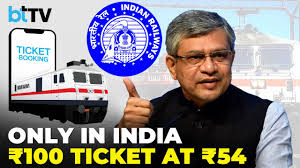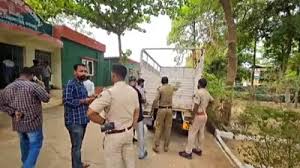Union Minister of Railways Ashwini Vaishnaw on Monday said that the Indian Railways is providing more subsidy to passengers as the cost of travel per km by train is Rs 1.38 but passengers are charged only 73 paise, which means 47 per cent subsidy.
Apart from providing safe and quality services to passengers at affordable fares, the railway is making a distinct identity at the global level, Vaishnaw said during the discussion on the working of the Ministry of Railways in the Rajya Sabha.
He further said that in India, railway fares are lower compared to neighbouring countries like Pakistan, Bangladesh, and Sri Lanka, whereas in the Western countries, they are 10 to 20 times higher as compared to India.
Subsidy Amount By Indian Railways:
In the financial year 2022-23, passengers were given a subsidy of Rs 57,000 crore, which increased to approximately Rs 60,000 crore in 2023-24 (provisional figure). “Our goal is to provide safe and better services at minimal fares,” said Vaishnaw.
The energy costs have remained stable despite the increasing number of passengers and freight transport, said the minister while highlighting the benefits of railway electrification.
Indian Railways’ Target:
The Indian Railways is working on the target of achieving ‘Scope 1 Net Zero’ by 2025 and ‘Scope 2 Net Zero’ by 2030.
The Railway Minister informed that the export of locomotives manufactured at the Madhepura factory in Bihar will begin soon.
Currently, Indian Railways’ passenger coaches are being exported to Mozambique, Bangladesh, and Sri Lanka, while locomotives are being sent to Mozambique, Senegal, Sri Lanka, Myanmar, and Bangladesh.
Apart from this, bogie underframes are being exported to the United Kingdom, Saudi Arabia, France, and Australia, while propulsion parts are being sent to France, Mexico, Germany, Spain, Romania, and Italy.
This year, 1,400 locomotives have been produced in India, which is more than the combined production of America and Europe.
Along with this, 2 lakh new wagons have been added to the fleet. The Minister stated that in the financial year ending March 31, Indian Railways will transport 1.6 billion tons of cargo, making India one of the top three countries in the world, including China and America.
Vaishnaw assured that the railway would emerge as a more modern, safe, and environmentally friendly transportation system in the future.


.jpg)
.jpg)
.jpg)
.jpg)

.jpg)